Conference President: Prof. Christoph Pieh
“NEW CHALLENGES – NEW APPROACHES”
8-11 June 2022 – Vienna, Austria
2022 EAPM Conference in Vienna
Conference Report written by Rachel Dale
Third time’s a charm! After postponements in 2020 and 2021 due to the COVID-19 pandemic, Vienna eventually had the honour of hosting the Annual Conference of the European Association of Psychosomatic Medicine from the 8th to 11th June 2022.
The hosting organisation was the Department for Psychosomatic Medicine and Psychotherapy at the University for Continuing Education, Krems. In 2019 the theme ‘New Challenges, New Approaches’ was chosen and little did we know how true that would be. Until the last minute we faced many uncertainties including “minor” things such as whether or not large events would be allowed at all, what restrictions might be in place and whether international participants would be able to travel. The war in Ukraine (just over 400km from Vienna) also created some travel uncertainty. Despite all this, the infection numbers dropped in early summer and the conference went ahead.
The venue was the stunning Hofburg imperial palace in central Vienna. A place steeped in history, known for extravagance and entertaining. This atmosphere enhanced the excitement in the air as everyone reconnected again after a hiatus from in-person events.
We received 340 abstract submissions and in the end 406 people attended the conference from 35 countries. The conference was awarded 12 credits by the European Accreditation Council for Continuing Medical Education.
The opening speech was delivered by professor Fathali Moghaddam who talked on the Psychology of Dictatorship. The day of his flight to Europe Professor Moghaddam unfortunately tested positive for COVID-19 and was unable to fly. Thankfully his health remained good and he was extremely kind and pre-recorded a talk to send us at the last moment which was very well-received.
The conference included ten keynote speakers: James Levenson received the Alison Creed award and spoke on the history of consultation-liaison psychiatry in America; Severin Hennemann won the Young Investigator Award and presented on CBT for somatic symptom distress and Wolfgang Söllner who won the Frits Huyse Award gave a wide-ranging lecture on psychosomatic medicine in postmodern society. Other key notes were given by Michael Sharpe who discussed the current relevance of George Engel’s concept of biopsychosocial medicine; Jane Walker, who presented her journey in psycho-oncology research; Peter Henningsen, who spoke on bodily distress and embodiment; Stefan Zipfel who discussed the treatment of anorexia nervosa; Franziska Geiser spoke (and sang) about resilience and Gabriele Moser who presented work on gut-brain interactions. Finally, we are especially grateful to Bernd Löwe for suddenly being able to pull an unexpected keynote lecture out of a hat to replace a last-minute cancellation.
In addition to the keynotes, each full day consisted of three sessions of six or seven parallel symposia, with a further six symposia on the Saturday morning. There were two poster sessions, with around 85 posters per session, which were combined with a refreshments break. Three poster awards were given to Katleen Bogaerts, Yichen Song and Marco Valerio. Furthermore, 10 EAPM travel awards were also given to early-career researchers.
Masterclasses provided participants with the chance to learn from experts in small groups and an interactive setting. This year the masterclasses were on ‘treating depression in the medically ill’ by Michael Sharpe, Problem solving therapy by Jane Walker and ‘psychopharmacology in the medically ill’ by James Levenson.
The young researchers special interest group were particularly active this year. They had their own small corner at the venue as a base, which was perfect for conference first-timers who could go there to meet people or ask questions. They also had their own symposium, a lunchtime mentoring session and a social evening. We especially thank Natalie Uhlenbusch and others for organizing this.
As well as all the science, we wanted to make sure there was also plenty of time for socialising and networking. After such a long break in in-person meetings, we felt this was important. The conference opening involved a networking evening with drinks, finger food and live music and many people stayed until the end. The second evening was for the early-career researchers, with a get-together in a local pub for food and chatting attended by around 90 young researchers. This was so popular that it was gate-crashed by a few “non-early-career” researchers. On the last evening we headed over to the dramatically gothic city hall (Rathaus) for a dinner and drinks in a beautiful courtyard.
At the closing ceremony the new EAPM President Michael Sharpe thanked the outgoing President Jordi Blanch for his service to the Association.
Although the conference was not quite as well-attended as some previous years, it was considered a great success by those who came; we are proud to have pulled it off under challenging circumstances. Thanks to all the attendees for their flexibility during the planning and their enthusiasm during the event.
We look forward now to passing the baton onto the 2023 organisers in Wroclaw, Poland and we are certain they will continue to keep the friendly atmosphere and intellectually stimulating spirit.
more information & news
Poster Awardees EAPM 2022 Vienna
At the EAPM 2022 Vienna conference we had a poster exhibition with around 200 posters. On Thursday and Friday poster sessions were held. The award committee selected three posters that…
Pictures of the EAPM 2022 Vienna Conference
You must be logged in to view this content. EAPM member LOGIN
EAPM Travel Awards 2022
EAPM Travel Awards 2022 We are happy to announce the 2022 EAPM Travel Awardees. Congratulations! Rosa Maidhof Austria Hanna Mües Austria Signe Ulfbeck Schovso Denmark Cecilia Fitz-Gerald USA Marie…
Prof James Levenson receives the Alison Creed Award 2022. Meet him in the interview.
Prof James Levenson receives the Alison Creed Award 2022. Read the interview with Prof James Levenson on the Alison Creed Award 2022 and find out more below. …
Severin Hennemann is the winner of the Elsevier/EAPM Young Investigator Award 2022
Severin Hennemann is the winner of the Elsevier/EAPM Young Investigator Award 2022 Brief summary of the award-winning work Persistent somatic symptoms (PSS), which can be more or…
Prof Wolfgang Söllner receives the Frits Huyse Award 2022. Meet him in the interview.
Prof Wolfgang Söllner receives the Frits Huyse Award 2022. Read the interview with Prof. Wolfgang Söllner on the Frits Huyse Award 2022 and find out more about him below. …
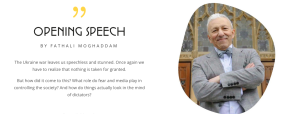
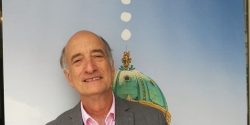
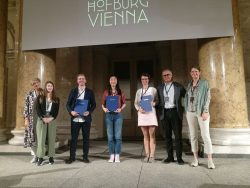
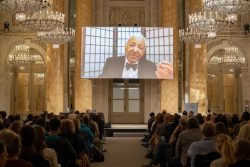
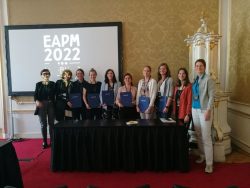
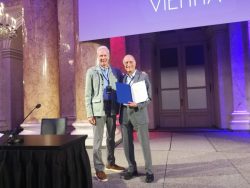
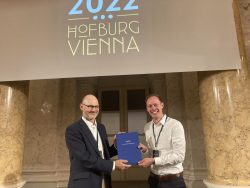
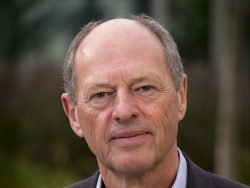
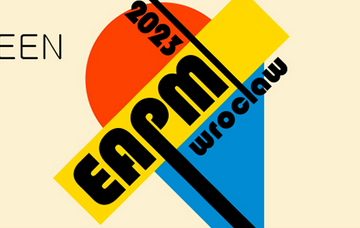
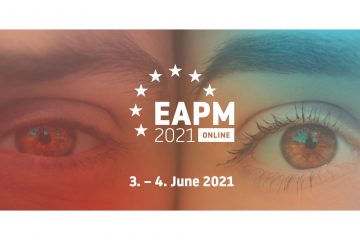
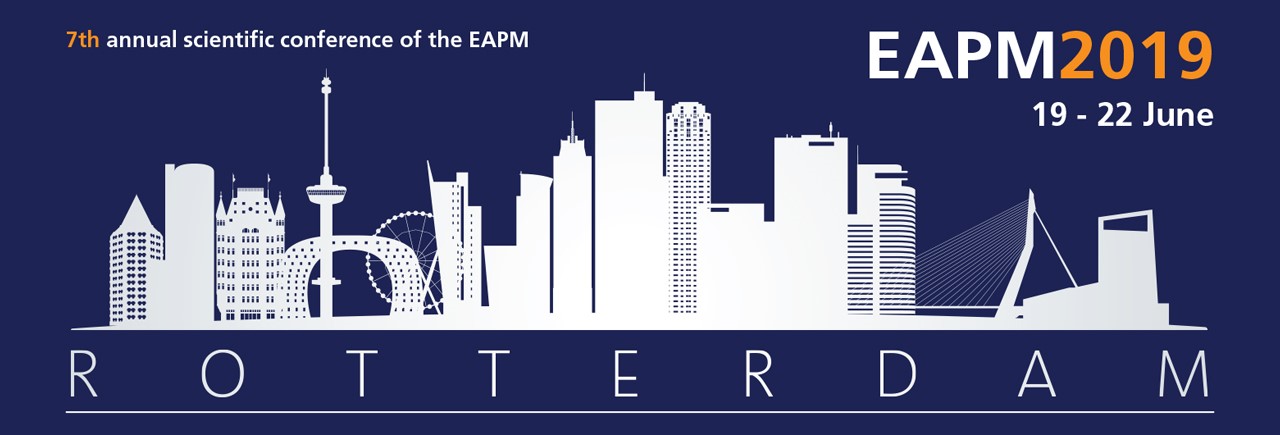
0 Comments